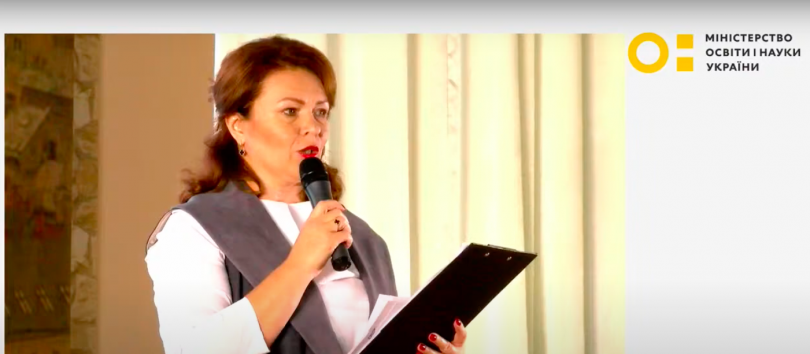
Educating for opportunity: relaunching vocational education and training in Ukraine
“Vocational education and training equips people with work-relevant skills so they can contribute their knowledge, skills and experience more directly to the economic development of the country”. These were the words of Ukraine’s Minister of Education and Science, Serhiy Shkarlet, at the opening of a major conference entitled “Education of opportunities: new horizons of vocational education and training in Ukraine”. The event was organised in Lviv, Ukraine, on 7 and 8 July 2021 by the Ukrainian Ministry of Education and Science in cooperation with the EU4Skills Programme. The aim of the conference was to assess the progress of Ukraine’s ambitious programme to relaunch vocational education and training as an effective and attractive pathway to quality employment.
With a declining and rapidly ageing population and high emigration, Ukraine faces a major challenge in finding enough people with the right skills to drive its economic development. In the 30 years since independence – which the country will celebrate on August 24 this year - vocational education and training has been the poor relation in the education family. While higher education has boomed - and Ukraine now has one of the highest rates of university participation in Europe, surpassing many EU member states - enrolment in vocational institutions has plummeted. This has led to widespread skills mismatches, and businesses struggling to find people with the technical and professional skills they need to grow.
“They used to say, if you don’t study hard, you’ll end up in a vocational school” said Olha Kovat, Member of the Ukrainian Parliament and chair of the parliamentary sub-committee on vocational education and training, which is currently scrutinising a new draft VET law. “It’s very important to focus on improving the reputation and image of vocational education and training” she said, pointing out that people with vocational qualifications often earn more than university graduates and have far better employment prospects.
Modernising the vocational education and training system is a key pillar of Ukraine’s strategy to accelerate economic growth and improve the livelihoods of its citizens. “It all started back in 2018 with the development of the concept of modern VET” said Iryna Shumik, Director General of Vocational Education at the Ukrainian Ministry of Education and Science. “All the support we got was from the EU and especially the European Training Foundation”
The proceedings of the conference were informed by a report on the progress of the reforms prepared by the European Training Foundation at the request of the European Union in close coordination with the Ministry of Education and Science. The findings of the report were presented to the national key stakeholders, the Ministry of Education and Science, social partners, selected regional representatives and VET providers, and the EU4Skills project. The recommendations are expected to feed into the programming of EU assistance to Ukraine and the revision of the country’s action plan for the VET strategy.
“The European Training Foundation has a longstanding cooperation with Ukraine,” explained ETF expert, Susanne M. Nielsen. “Our support to Ukraine focuses on policy dialogue in VET and skills development based on EU standards and international practices.”
The ETF supported Ukrainian stakeholders in developing the Concept for Modern VET that was adopted 2019 as a basis for VET reform. It helped in the establishment of a National Qualifications Agency and the development of a national qualifications framework. It supported the decentralisation of VET to optimise the vocational schools network and the role of regional VET Councils. The ETF has also supported the Ministry of Education and Science in developing the Centres of Excellence concept.
On the other hand, the ETF worked with the the EU Delegation to Ukraine and the European Commission services in the design and formulation of EU4Skills, a €60 million programme co-funded by the EU and four Member States (Estonia, Finland, Germany and Poland) supporting the country’s reform efforts.
The ETF will continue to monitor and report on the progress of VET reforms in Ukraine.
“It is positive to see that the effectiveness of the reforms in Ukraine is high” said Ms Nielsen. “We see real achievements for example in the further development of occupational standards, or the introduction of competency-based learning and dual education”.
Did you like this article? If you would like to be notified when new content like this is published, subscribe to receive our email alerts.